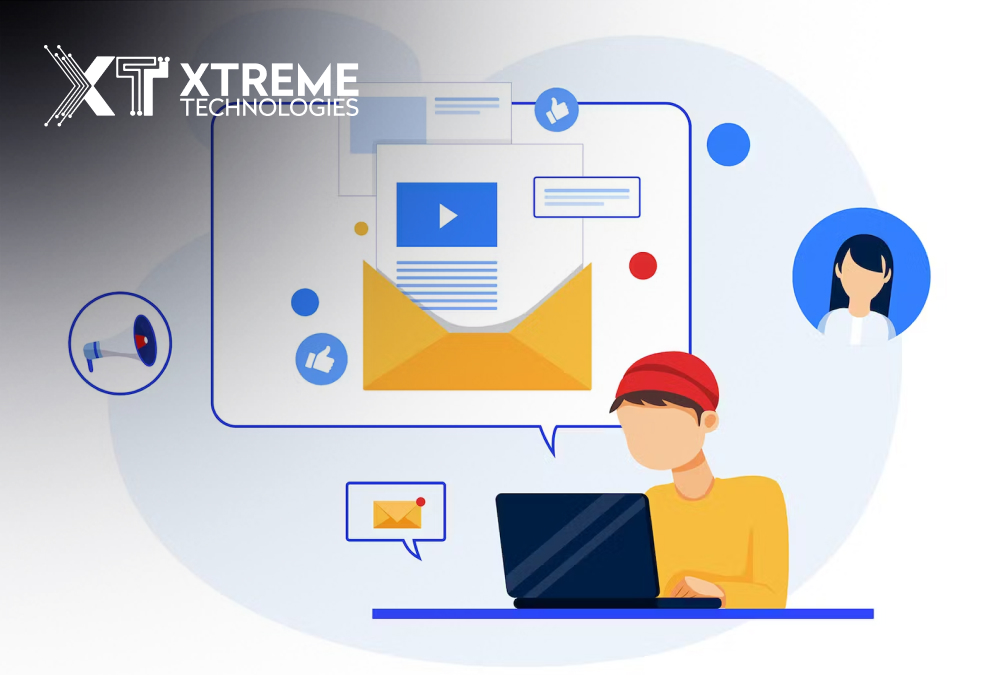
The Power of Email Marketing in Fueling Your Overall Inbound Strategy
All, Digital Marketing, SEO,
Published on: July 10, 2023
In the digital age, businesses are constantly seeking effective ways to reach their target audience and generate leads. One strategy that has stood the test of time and continues to deliver exceptional results is email marketing. Email marketing has evolved over the years and remains a powerful tool for businesses to engage with their prospects and customers. When integrated into an overall inbound marketing strategy, email marketing can fuel success by nurturing relationships, driving traffic, and boosting conversions. In this blog post, we will explore how email marketing can power your overall inbound strategy and help your business achieve its marketing goals.
1. Building and Nurturing Relationships:
At the core of inbound marketing is building strong relationships with your audience. Email marketing allows you to connect with your subscribers on a personal level, delivering targeted and relevant content directly to their inboxes. By consistently providing value through informative and engaging emails, you can establish trust and credibility with your subscribers. This trust is crucial for converting leads into customers and fostering long-term loyalty.
By consistently providing value through informative and engaging emails, you can establish trust and credibility with your subscribers. This trust is crucial for converting leads into customers and fostering long-term loyalty.
2. Lead Generation and List Building:
Email marketing serves as a valuable lead-generation tool within an inbound strategy. By creating compelling opt-in forms and landing pages, you can entice visitors to subscribe to your email list. These subscribers have already shown interest in your business or offerings, making them high-potential leads. As you continue to provide valuable content through email campaigns, you can nurture these leads and guide them through the sales funnel.
These subscribers have already shown interest in your business or offerings, making them high-potential leads. As you continue to provide valuable content through email campaigns, you can nurture these leads and guide them through the sales funnel.
3. Targeted and Personalized Content:
Email marketing allows you to segment your audience based on various factors such as demographics, interests, or past interactions. This segmentation enables you to deliver highly targeted and personalized content to different segments of your email list. By sending relevant content to the right people, you increase the chances of engagement and conversion. Personalization can include personalized subject lines, product recommendations based on past purchases, or tailored content based on subscriber preferences. Such customization helps build a stronger connection and increases the effectiveness of your overall inbound strategy.
Personalization can include personalized subject lines, product recommendations based on past purchases, or tailored content based on subscriber preferences. Such customization helps build a stronger connection and increases the effectiveness of your overall inbound strategy.
4. Driving Traffic to Your Website:
One of the primary goals of an inbound strategy is to drive traffic to your website. Email marketing plays a vital role in achieving this objective. By including links to relevant blog posts, landing pages, or product pages within your emails, you can direct recipients to your website. Additionally, by integrating social sharing buttons, you can encourage subscribers to share your content with their networks, further amplifying your reach. Increased website traffic leads to higher visibility, improved SEO, and ultimately more opportunities for conversion.5. Lead Nurturing and Conversion:
Email marketing excels at lead nurturing by providing a consistent and automated way to engage with prospects throughout their buying journey. By sending targeted emails based on specific actions or behaviors, you can guide leads toward conversion. Automated email sequences, such as welcome emails, onboarding series, or abandoned cart reminders, can gently push leads further down the sales funnel and increase conversion rates. Well-crafted emails that address pain points, provide solutions, and showcase the value of your offerings can significantly impact the decision-making process of potential customers.6. Analyzing and Iterating:
An integral part of any successful inbound strategy is continuous improvement. Email marketing provides valuable data and insights that allow you to analyze the effectiveness of your campaigns. By tracking metrics such as open rates, click-through rates, and conversion rates, you can identify what works and what needs improvement. This data-driven approach enables you to iterate and optimize your email campaigns for better results over time. One of the key advantages of email marketing is its effectiveness in lead nurturing and conversion. Through automated email sequences, businesses can guide leads through the sales funnel, delivering targeted messages based on specific actions or behaviors. For instance, welcome emails can introduce new subscribers to the brand and its offerings, while onboarding series can provide valuable information and guide them towards making their first purchase. Abandoned cart reminders can help recover potential lost sales by reminding customers of their abandoned items. By strategically designing and implementing these automated sequences, businesses can engage leads at critical stages of their buyer's journey and increase the likelihood of conversion. Furthermore, by analyzing email marketing metrics such as open rates, click-through rates, and conversions, businesses can gain insights into the effectiveness of their campaigns and make data-driven decisions to optimize their email marketing efforts for better results. Email marketing's ability to nurture leads, drive conversions, and provide measurable results makes it an indispensable tool in fueling an overall inbound strategy.Conclusion:
Email marketing remains a cornerstone of effective inbound marketing strategies. By leveraging the power of personalized content, building strong relationships, and driving traffic to your website, email marketing can significantly contribute to your overall inbound strategy's success.
Read Also: Unleashing the Power of Digital Marketing: A Comprehensive Guide to Monetizing Your Skills
By nurturing leads and guiding them through the sales funnel, you can achieve higher conversion rates and long-term customer loyalty. Furthermore, the ability to analyze and iterate your email campaigns ensures continuous improvement and better outcomes over time. Integrate email marketing into your inbound strategy, and you'll witness its immense potential in fueling your business's growth and success.





Recent Comments